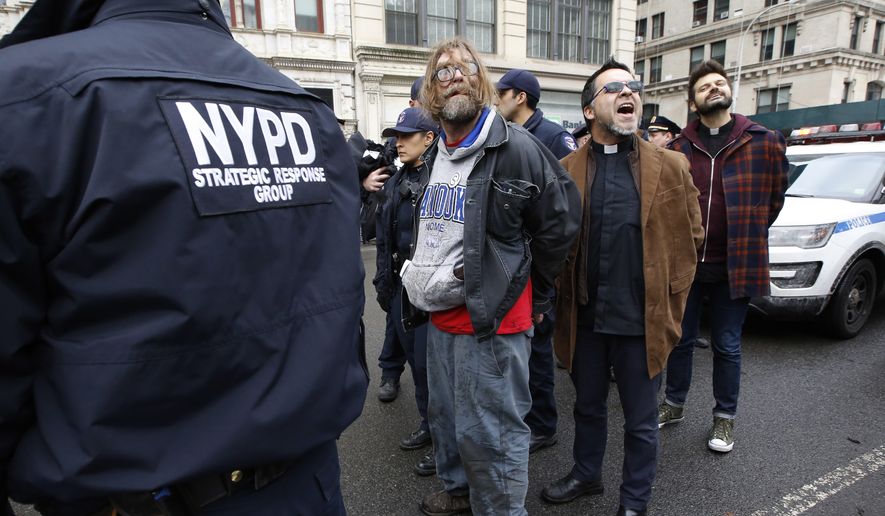The New York Association of Chiefs of Police is backing Homeland Security over its own state leaders in a growing battle over the state’s new sanctuary law that not only grants driver’s licenses to illegal immigrants, but also bans immigration law enforcement agencies from access to motor vehicle records.
The chiefs, in a letter this week to acting Secretary Chad Wolf, pointed out the opposed New York’s law when it was enacted last year, and said nothing has changed to make them like it more.
“Our members fully recognize that sharing pertinent law enforcement information and vital resources across local, state and federal boundaries is critical to ensuring the safety of the communities we serve,” wrote Patrick D. Phelan, president of the association.
The letter, which calls for “reasonableness” to prevail, is an embarrassing black eye for New York leaders, undercutting their complaint that they were singled out for political retaliation by the Trump administration.
The law in question prevents Customs and Border Protection (CBP) and Immigration and Customs Enforcement (ICE) from gaining access to state records.
That means agents and officers no longer can run car tags or check IDs of those they encounter during their duties. Officials said that’s a major hindrance in a border state like New York, where CBP has a large presence.
CBP last week announced New Yorkers will no longer be able to sign up for trusted traveler programs such as Global Entry because officers no longer can check state databases for DUI and other traffic records. Those records checks are a requirement for the programs, CBP says.
New York has sued to block CBP’s move, saying the state still allows the FBI access to records, so CBP can talk to them — just not New York directly.
Homeland Security officials said they’re not sure whether that would work, and said regardless, it’s not up to the federal government to figure out ways to accommodate an antagonistic state.
• Stephen Dinan can be reached at sdinan@washingtontimes.com.




Please read our comment policy before commenting.